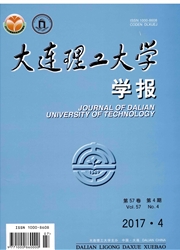

 中文摘要:
中文摘要:
采用超声辐照新技术降解水中三氯乙烯(TCE),实验研究了影响TCE降解速率的主要因素.结果表明:TCE降解率随初始浓度增加而减小,呈现准一级反应动力学特性;增加超声波输出功率可以明显提高TCE降解率,在60 min内TCE的去除率可达90%以上;空化气体对TCE降解率的影响顺序为Ar〉O2~空气;自由基清除剂的加入对TCE的降解效果稍有影响,表明TCE的超声降解主要是在空化泡内以及空化泡的气-液界面内的高温热解,同时在超声降解TCE过程中也可能伴随着自由基氧化作用.
 英文摘要:
英文摘要:
A new technique of ultrasonic irradiation is applied to decompose trichloroethylene (TCE) in aqueous solution. The effects of primary factors on degradation efficiency of TCE are experimentally studied. The results indicate that TCE degradation efficiency decreases with initial concentration of TCE in the pseudo-first order kinetics. With increasing ultrasonic power, the degradation efficiency of TCE is enhanced obviously, and the rate of degradation achieves over 90% within 60 min. The effect of selected cavitating gases on the degradation of TCE is in order Ar〉 O2 Air. The presence of radical scavenger has a little effect on the degradation efficiency which indicates that ultrasonic degradation of TCE occurs predominantly both at the bubbles and the liquid-gas interfaces of bubbles where it undergoes high-temperature combustion. Moreover, the results suggest that radical oxidation could appear during the process of ultrasonic degradation of TCE.
 同期刊论文项目
同期刊论文项目
 同项目期刊论文
同项目期刊论文
 期刊信息
期刊信息
